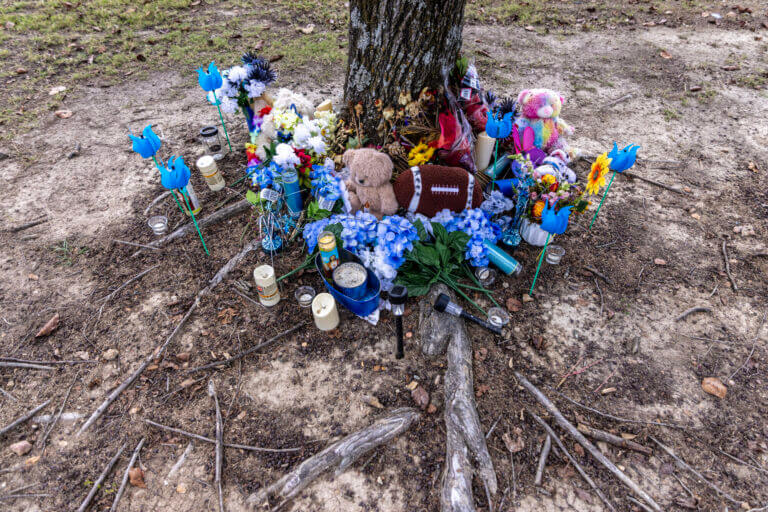
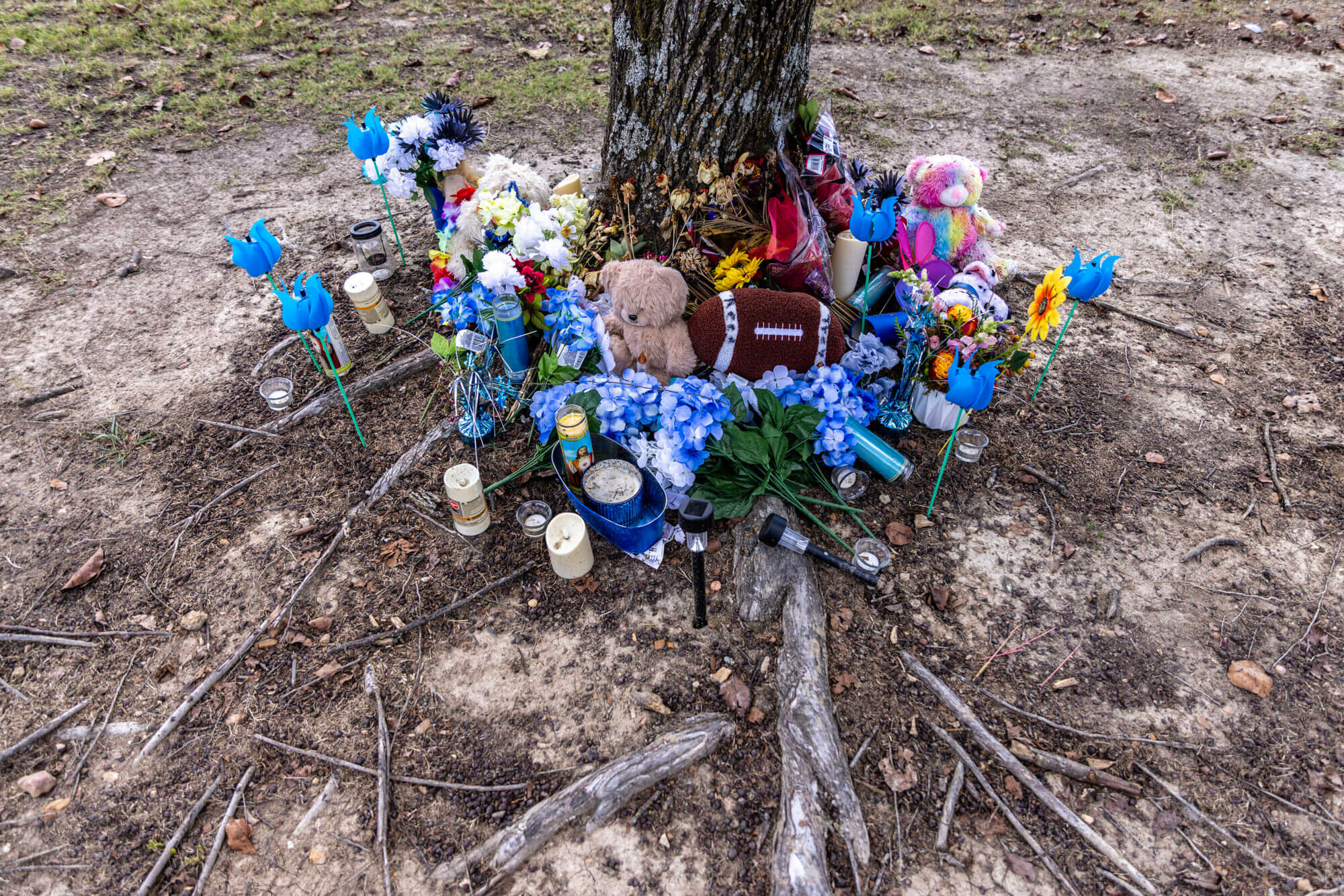
CLEVELAND — One text message in a group chat.
That’s all it took for Mtume Matthews to gather hundreds of Delta State University students, faculty, staff and neighbors to a candlelight vigil on the night of Sept. 18.
There they mourned 21-year-old Demartravion “Trey” Reed, the first-year student who took his life earlier that week.
The death of the Black student jolted the city of Cleveland, a small college town in northwest Mississippi with a roughly 2,700-student population, into national headlines. A flurry of social media posts with conflicting information on Reed’s death led to confusion about campus safety.
There was also public outcry — prompting a response informed by Mississippi’s history of racism and violence — where many disputed his death twice ruled as a suicide by state and county authorities. Reed’s body was found hanging from a tree on campus Sept. 15. Results of a second independent autopsy commissioned on behalf of Reed’s family have not been released.
But Matthews said that moment of solemnity and stillness on the campus quadrangle that night gave him an idea.
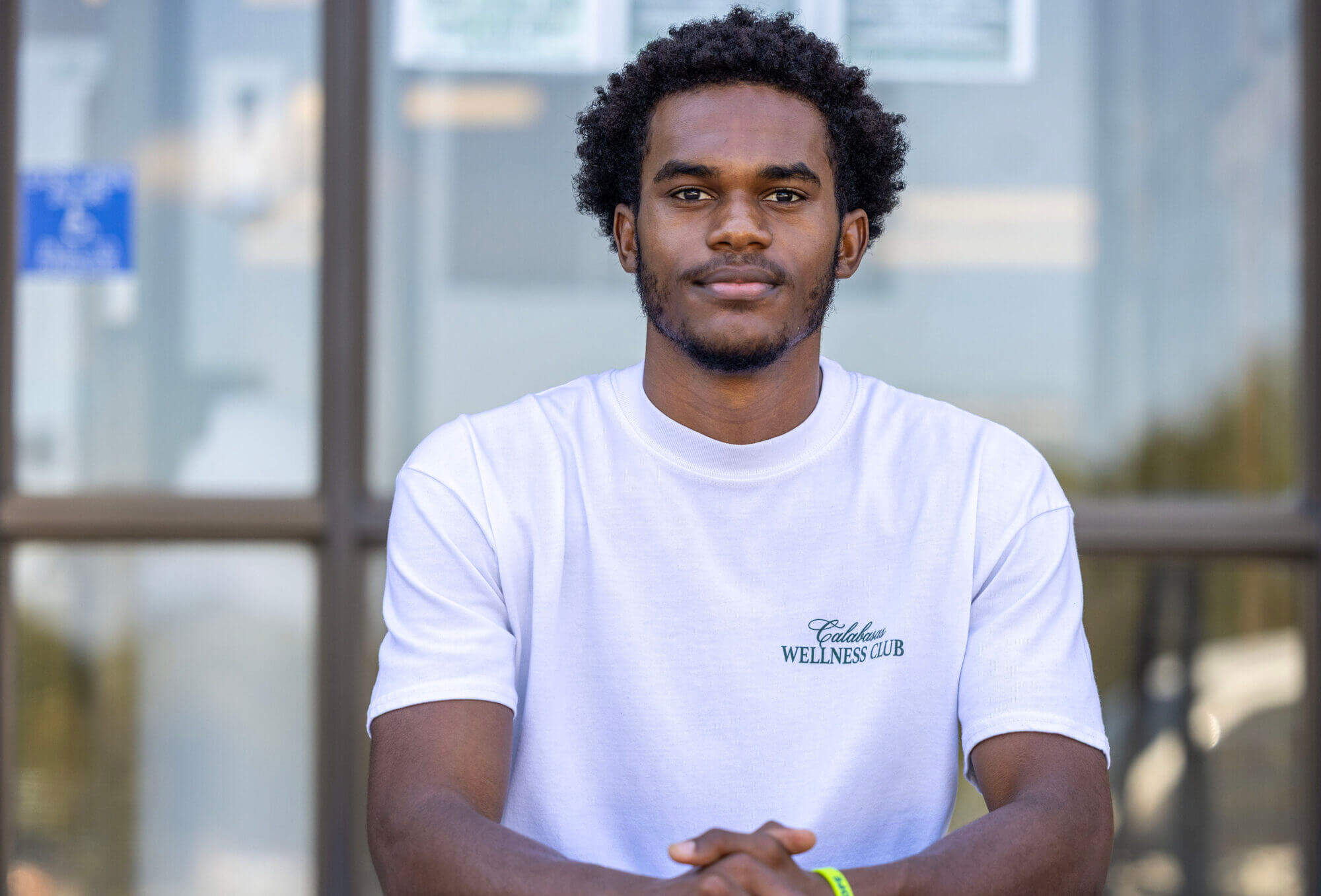
“In those first few days, students just wanted answers. That was the biggest thing,” said Matthews, a junior studying flight operations. “But now, it’s like, ‘OK, where do we go next?’ How do we hold each other accountable and build a family?”
In the weeks following the death of their classmate, students including Matthews, Jamaal Bryant and Maitlynn White have rallied their peers to process grief. They’ve created memorials and fundraisers for Reed’s family, launched new mental health initiatives for student groups and provided solutions and support on campus.
And, university officials are taking notice.
The day after the vigil, Bryant, president of DSU’s Divine Nine chapter, approached Matthews with a solution. He wanted Black male students to open up and express their feelings about loss. Having a safe space to do it would make everyone more comfortable, he said.
“There’s a stigma that Black men don’t talk to anybody. That we handle things by ourselves or we don’t need anyone to lean on,” Bryant said. “That can build so much pressure within us. (Reed) could’ve been looking for someone or a community in his time of need.”
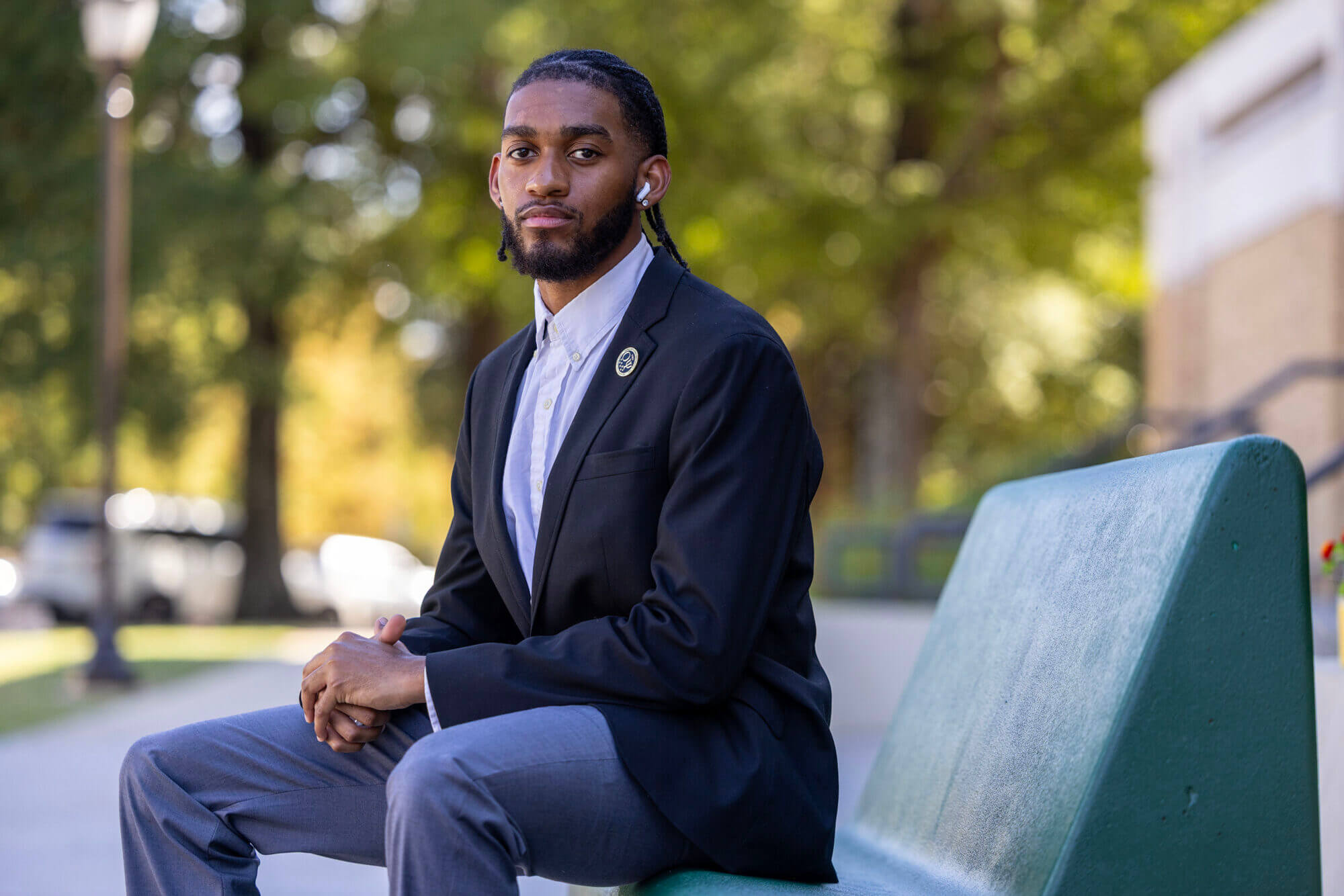
In 2023, suicide was the third-leading cause of death for Black people between the ages of 15 and 35, according to the Centers for Disease Control and Prevention. Death by suicide spiked for Black males ages 10-24 by 36% between 2018-2021.
Black youth are also less likely to receive adequate access to care than peers in other demographic groups, in part because of “systemic inequities, including racism, poverty, as well as deeply rooted stigma around mental health and well-founded cultural mistrust of the health care system,” according to an April 2024 report from Pew Charitable Trust. Risk factors for suicide can often be misunderstood or ignored in African-Americans males.
Starting this month, the African American Student Council and Delta State’s Divine Nine, a council for the historically Black fraternities and sororities on campus, is hosting biweekly discussions on mental wellness. They aim to provide students with coping skills to care for their mental health, as well as “building a family away from home”.
“That’s what college is really about, you know,” said Matthews, president of the African American Student Council. “We needed to come around each other because we don’t want anyone to be isolated during this time.”
Forty percent of the students at Delta State are Black.
The sessions will be on Fridays from 1-2 p.m. for men and 2-3 p.m. for women in the Statesmen Room.
Each talk will feature a guest speaker, most likely a university official on campus who can share wisdom and insight on how they manage their health. They will be followed with break-out sessions and include pamphlets, guides and resources from the university’s counseling services center.
“After the vigil, everybody kind of got the reassurance like, ‘we got each other,’” Bryant said. “We’re just trying to make sure that everybody is OK on campus. You know, get us back on a positive foot. ”
‘The Resolve and Resiliency’
It has been difficult for students and faculty to feel like they’ve emerged from this “dark moment,” said Eddie Lovin, vice president of student affairs.
When he was first alerted to the news, he called Paula King, the director of health and counseling services. They began to strategize what outreach and support would look like for their students.
They opened Sillers Chapel, the university’s church, for prayer and meditation knowing that students would lean into their faith.
King’s office began receiving an outpouring of emails and phone calls from other Mississippi public universities and colleges, Cleveland school system’s therapists and Life and Health, a community mental health agency. All offered to assist with services.
In trying to use lessons learned from the fatal shooting on campus of history professor Ethan Schmidt in September 2015, King said her staff knew how to manage that swell of support.
They learned that support for students was needed in weeks following a traumatic event, rather than in that moment.
Symptoms of grief like irritability and trouble sleeping and concentrating, can show up much later, she said. The goal for King and her staff these past few weeks has been to increase awareness around resources and services.
“A lot of what we’ve done has been making sure people know what to expect when you experience something traumatic and that you did not have to know (Reed) to be affected by his death. That it is kind of a human thing to feel that way,” Paula King, director of health and counseling services.
“We have definitely seen an influx of traffic,” King said. “A lot of what we’ve done has been making sure people know what to expect when you experience something traumatic and that you did not have to know (Reed) to be affected by his death. That it is kind of a human thing to feel that way.”
Lovin also received a text from Hayden Kirkhart, president of the student government association. Kirkhart told him the students were setting up tables in the lobby of the Union so peer counselors could connect and talk. It was the initiative within those first few hours that overwhelmed Lovin with admiration.
“Our student leaders stepped into the trenches right there alongside administration, faculty and staff trying to provide that support knowing that they were also dealing with everything going on,” Lovin said. “The resolve and resiliency of them in the face of everything, I got strengthened every time I found out they were doing this for each other.”
‘Strong minds, Strong Statesmen’
The announcement of Reed’s death hit close to home for Maitlynn White.
White, a senior studying elementary education, lost a childhood friend from suicide during her freshman year. The pain she felt in the moment was heavy and isolating. But, it was small, simple messages that reminded her that her friend “was in God’s arms, at peace.”
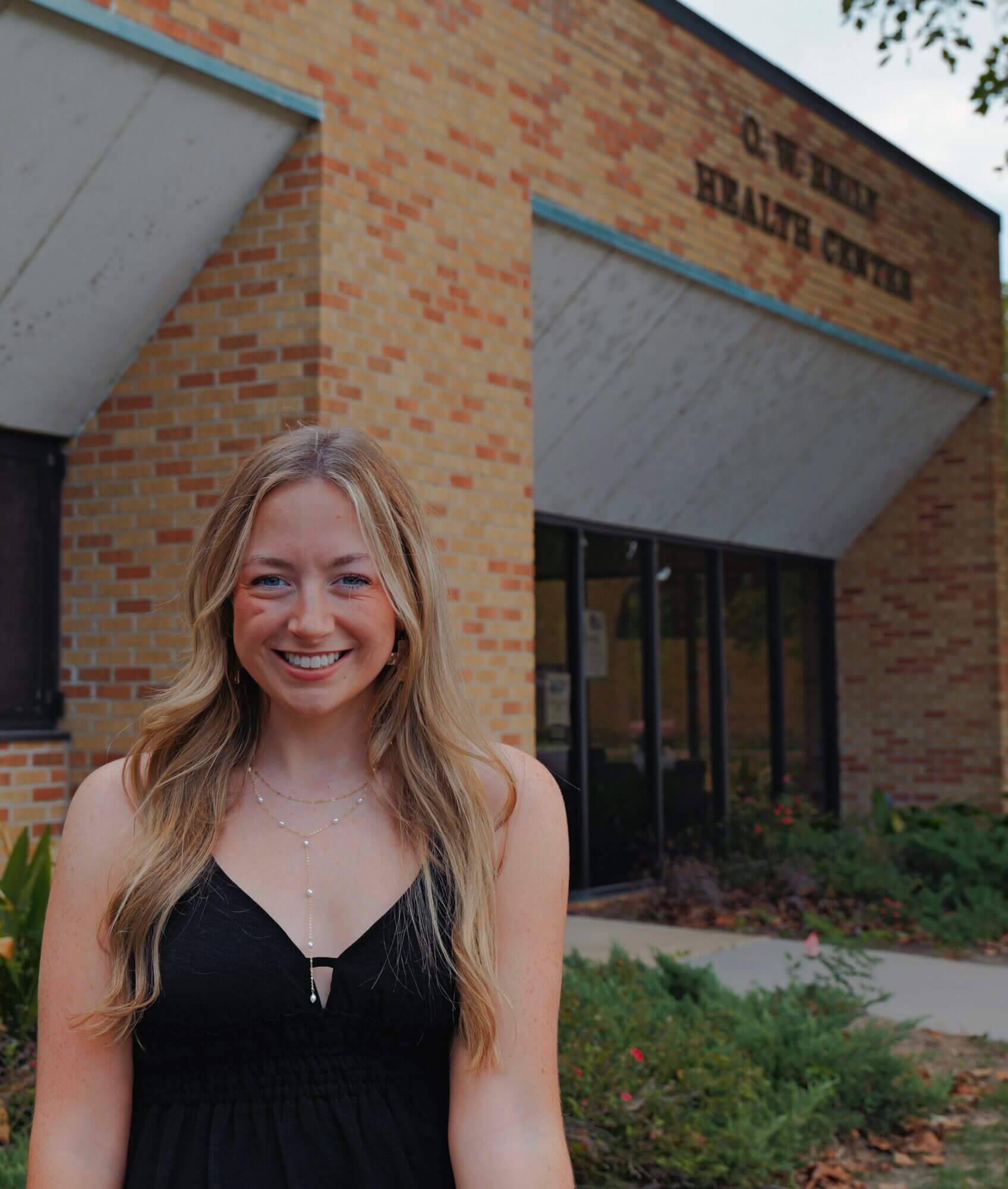
“I realized how important it is to be there for others and create spaces where students can support each other,” said White, president of College Panhellenic Council. “That experience inspired me to step into the role of being a student for students making sure no one has to grieve alone.”
So White pulled a six-pack box of colorful sidewalk chalk from the trunk of her car. She walked to different spots on campus and wrote affirmations.
“You got this,” said one note scrawled in blue chalk on the sidewalk near Cain-Tatum and Lawler-Hawkins Hall. It was accompanied by a big smiley face.
“Strong minds, Strong Statesmen,” said another affirmation in white and black chalk, echoing school pride, colors and mascot.
“You are loved,” one note said, ‘o’ replaced with a pink heart.
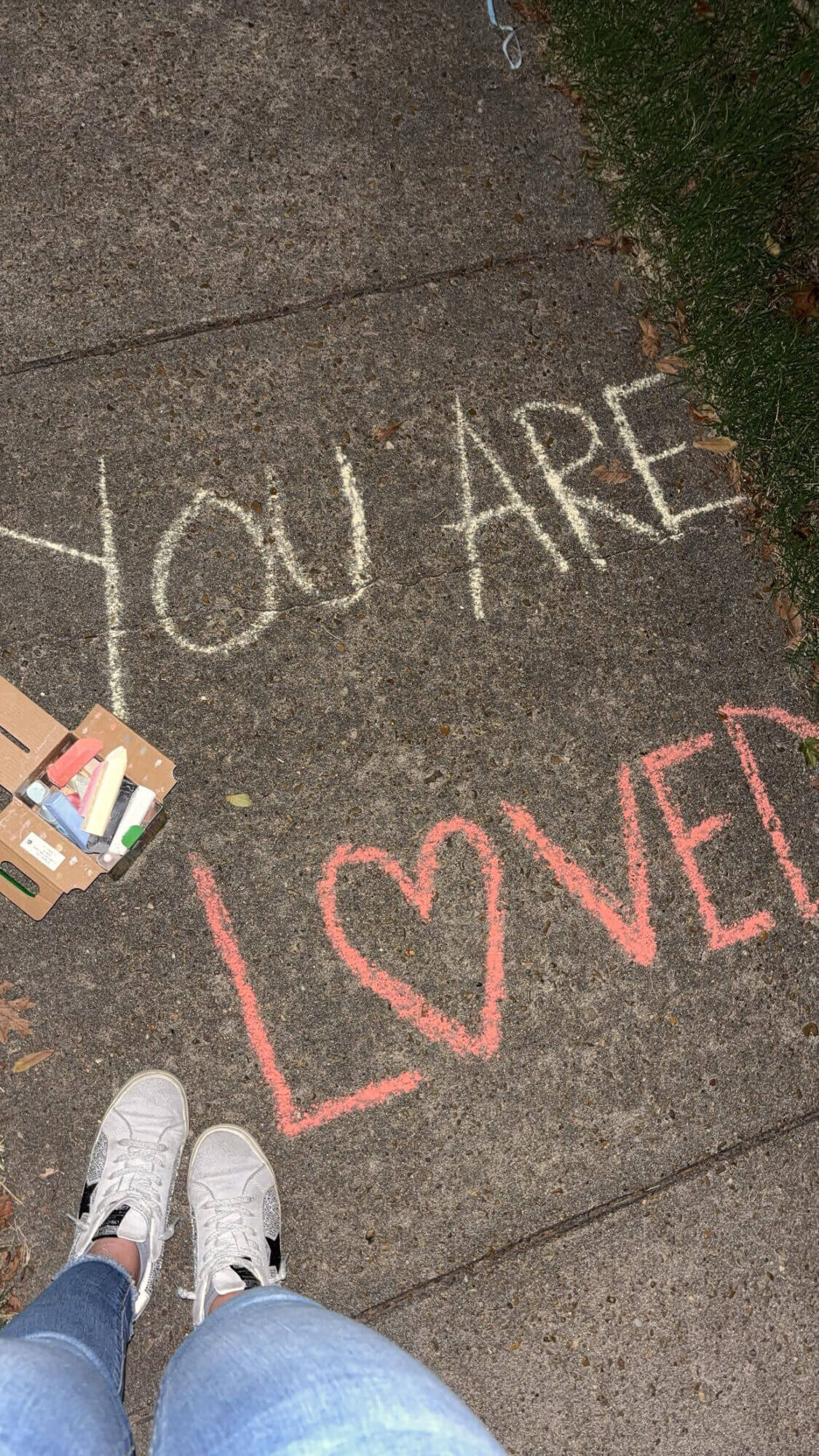
With an increase in mental health campaigns, students are encouraging open dialogue to create a campus culture where everyone is supported and valued, White said.
The sidewalk messages to students were a break from the solitude, stress and confusion everyone was feeling at the time. Writing them became a reminder of her own strength in that moment. Everyone is processing this loss together, she said.
“No college student wants to talk about how they’re really feeling,” White said. “Most of the students here are experiencing a loss of a peer for the first time. The mental health campaigns and initiatives we establish now will continue well after we graduate.”
Speaking of Reed, she said. “It’s to honor him and make sure that no Delta State student is left behind.”
If you or someone you know is struggling or in crisis, call the National Suicide Prevention Lifeline at 1-800-273-8255 or text HOME to the Crisis Text Line at 741741.
- State fire marshal is investigating troubled Unit 29 at Parchman prison - February 26, 2026
- Mississippi’s Winter Storm Fern losses exceed $107 million, state insurance department says - February 26, 2026
- DNA evidence linked to a Greenville homicide is missing. Now the finger-pointing begins - February 26, 2026